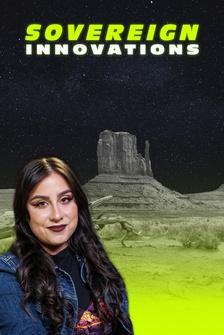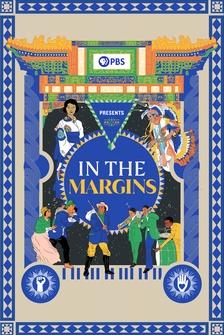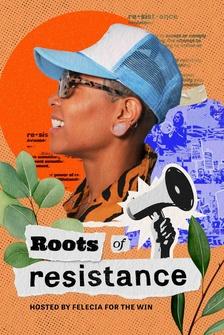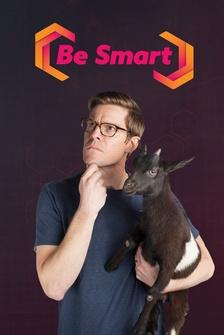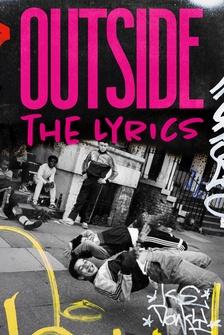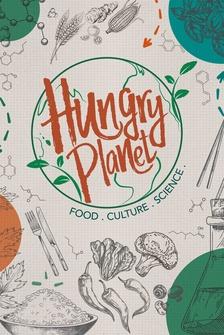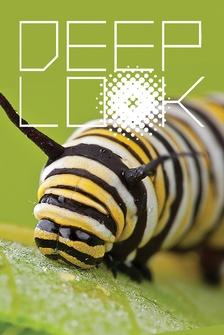(upbeat funky music) - Food has always been political.
The meals we eat and the people who make them are all part of a cycle of reciprocity.
Food brings us together, gives us nourishment and care for our community, and gives us opportunities to feed back into our community's future as long as we keep that cycle going.
If you've ever spent time arguing over who's allowed to bring the potato salad to the cookout, or whether sweet or savory grits are better, and if you said sweet grits, you are wrong, you know that nothing gets people more fired up than the food they eat.
But why?
Food is more than how we nourish our bodies.
It's how we share our histories and traditions.
It's how we care for the people around us.
It's how we express our identities and our values.
The food we eat is who we are, but can food be a form of activism?
My name is KJ Kearney.
We're in Charleston, South Carolina, and this is "Citizen Better".
(funky hip hop music) When it comes to being civically engaged, not everybody feels like they can start a nonprofit or run for office or even march in the streets.
But everybody's gotta eat, so why not get involved in your own community by doing something you have to do every single day?
(funky hip hop music) We went out into the community to find out how people were doing just that, which is where we met Nicole, a realtor and small business owner in the Charleston area.
Why do you think it is important for people to support black-owned businesses?
- I think it's important to support black-owned businesses because there's a disparity in income in the amount of money that black people make.
I own a black business and I know that it's more difficult to get business, the number of people that I'll have access to that will want to do business with me.
People tend to wanna do business with someone that looks like them.
- Now, as it relates to restaurants, what do you think would've been a better way to make sure that that business sustained over time?
- When you support a black restaurant, you don't have to support it just one time.
You can go again, add it to the rotation.
We're not saying don't support other businesses.
Just add black food, black restaurants, black-owned restaurants to the rotation.
The food is seasoned.
- The food is seasoned!
- Hello?
(KJ laughing) - That is good.
There are a lot of people who have tried to support more black-owned restaurants since the pandemic and Black Lives Matter uprisings of 2020, but using food to fuel social movements is nothing new.
During the Civil Rights Movement in the 1960s, organizers gathered over restaurant meals, protested segregation at lunch counter sit-ins, and even funded the movement with under the radar bake sales.
(soulful piano music) Georgia Gilmore was on her way home from work as a cook at a Montgomery, Alabama cafeteria where she tried to take the bus.
The driver yelled at her for boarding through the front door, but when she got off to board at the back, he sped away.
Ms. Gilmore was one of the many black Montgomery residents who faced discrimination in the city's public transit system and were already organizing to make a change.
They called themselves the Montgomery Improvement Association, and together they organized black citizens to boycott buses, arranged mass carpools and raised money to keep the operation going.
(upbeat soul music) While many organizers joined neighborhood fundraising groups, Georgia Gilmore started one of her own, The Club From Nowhere.
This group of anonymous women made home cooked meals and baked cakes and pies to sell at improvement association meetings, in beauty shops, even out of their own homes, raising hundreds of dollars each week to pay for the gas that kept the carpools running.
Ms. Gilmore and her Club From Nowhere not only funded the 381 day boycott, she also gave many home cooks a concrete way to support the Civil Rights Movement, setting the example that even baking a pie could be a political act.
(soulful organ music) (bluesy guitar music) But not everyone can cook for free.
What if you're an entrepreneur who wants to both sustain your family and support the community around you?
What could that look like and would it make a difference?
Founded by community activist, Kevin Gray Railroad Barbecue prides itself on its smoked meats and traditional barbecue sides.
But it's their mission that takes a page from The Club From Nowhere blueprint.
You see, Kevin Gray believed art and culture are at the core of building stronger, more civically engaged communities, but at the time, black artists were rarely supported.
So he had an idea to change that.
Sadly, Kevin passed away, but his legacy is now being carried on by his daughter Camille.
One of the things that struck me when I came in here is every single inch of his place is covered in a photograph, some sports paraphernalia.
What was the inspiration behind that?
- My dad was, well, his degree is in political science, so he's always been in politics since a young age.
He always loved art, so a lot of this was his personal collection.
- I've traveled all over this nation going to black restaurants.
I can't say that I've met a black restaurateur that also has an art center attached to it.
So let's talk about that art center.
What is the goal of this art center?
Why do y'all have this in the first place?
- A creative space.
Because if you think about it a lot, and even in the schools now, they're taking a lot of that away.
Art, music.
So you're not allowing people to be creative.
That's important too, because, how do we depict our society?
We use pictures, we use artwork.
And a lot of times we wouldn't have any of this if we don't have any artists.
- And for Camille, maintaining a strong bond with the community is an essential part of the railroad mission.
- You wanna always preserve the history of your neighborhood, regardless of whatever else is going on around you.
So we want to be conscious of the people who are still here and the people who are gone.
- If your patrons wanted to be more civically engaged, how would you encourage them to do so?
- To start at the restaurants and support ours.
Come back and make sure that you give back to the community.
(bluesy band music) - We've seen how food can be used as a tool to empower communities.
But what happens when a small black-owned restaurant faces an existential crisis?
Between February and April of 2020, 41% of black-owned businesses closed at more than double the rate of white-owned businesses.
The businesses that survived were also less likely to receive financial support from the paycheck protection program.
The same businesses that brought communities together pre pandemic were hanging on by a thread in isolation.
Then another crisis hit.
The 2020 deaths of George Floyd and Breonna Taylor ignited a new wave of urgency into the Black Lives Matter movement, and individuals across the country were hungry for ways to take action.
Calls to buy black spread across social media, and even in the midst of tragedy, many businesses boomed.
People showed that when everything was on the line, they already knew their favorite local joint was bigger than just a restaurant.
For spots like Gillie's, it was validation that their community-first approach was right all along.
(chill lofi music) Owned and operated by Chef Sean Mendez, Gillie's Seafood has become a staple in James Island, South Carolina.
The restaurant is both inspired by and named after the most influential person in Chef Mendez's culinary upbringing, his grandmother, Laurice Gilliard.
So while Chef Mendez serves up a mix of both Gullah Geechee and Creole Fair, blended with traditional low country favorites like shrimp and grits, he came up with a unique way to bring community together through the power of collective memory.
I think of food as a tool of liberation.
I think of food as a tool to help communities.
I also think of food as a political thing.
- My dad always told me, don't ever talk about politics and religion with people.
So I try to keep that out of it.
But I think like most things, the way you live is a testament to who you are and then I let people make the decisions from there.
- So now, even if it's not seen as political in your eyes, it sounds like you do think of it as a communal thing.
Like, it's almost like community engagement in a sense.
- I believe so because we always try to do as much as we can for the local schools because again, it goes back to treating your locals and your people around you.
You set roots where you are and you water everything around you, and that just bears fruit.
- One of the most defining aspects of Gillie's Seafood is the grandma wall, where customers from all walks of life are invited to hang up photos of their grandmas in honor of their own respective family food traditions.
Something Chef Mendez knows is extremely important.
You mentioned your grandma taught you how to cook and you learned basically at her feet.
How important is it in your mind to have this generational connection so that these recipes get passed down to future generations?
- If I don't pass down what I've learned, then it dies with me.
Gullah Geechee culture is where it is now because we have passed it down.
But it's gonna be difficult because of where we are as a society now.
Everything's fast and quick and how fast can I get this and do that.
If you have kids that love to eat, show them how to cook it because that's gonna go further for them in the long run than letting them go out here and spend money on food that's not even good for them.
(chill lofi music) - Sounds like an ideal way to keep building on our shared food history and respective communities for generations to come.
It also sounds like a perfect way to "Citizen Better".
I'm KJ Kearney and thanks for watching.
(upbeat hip hop music)






